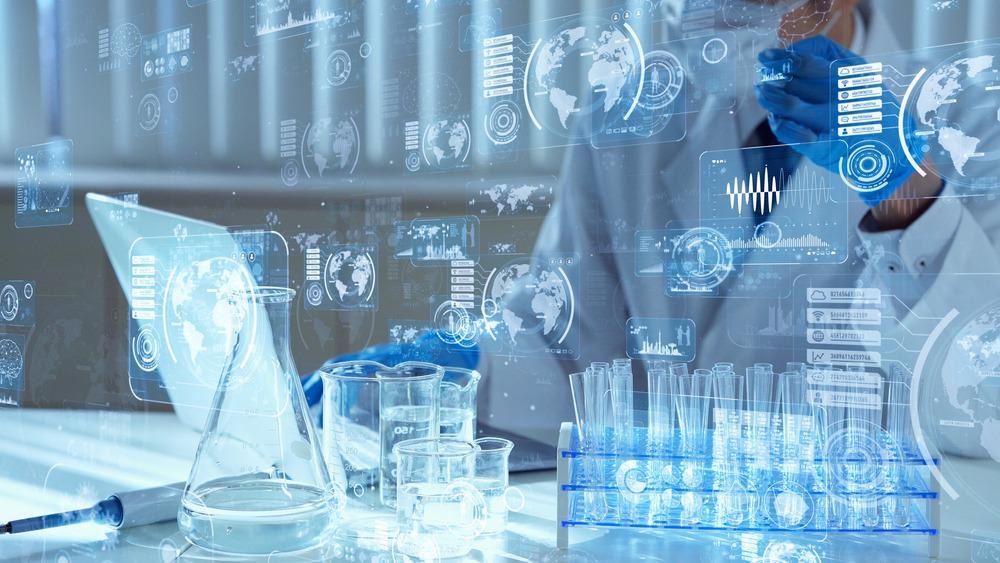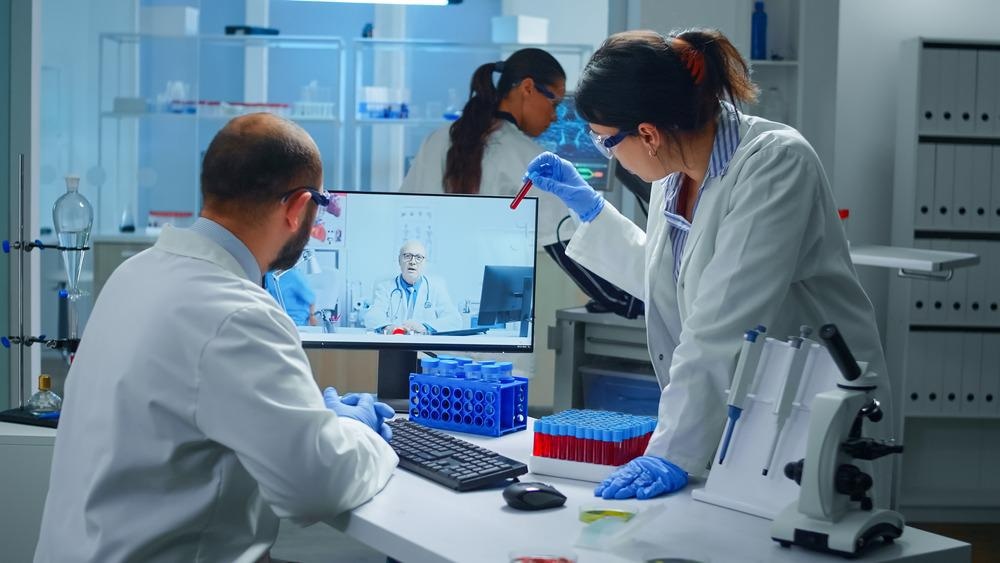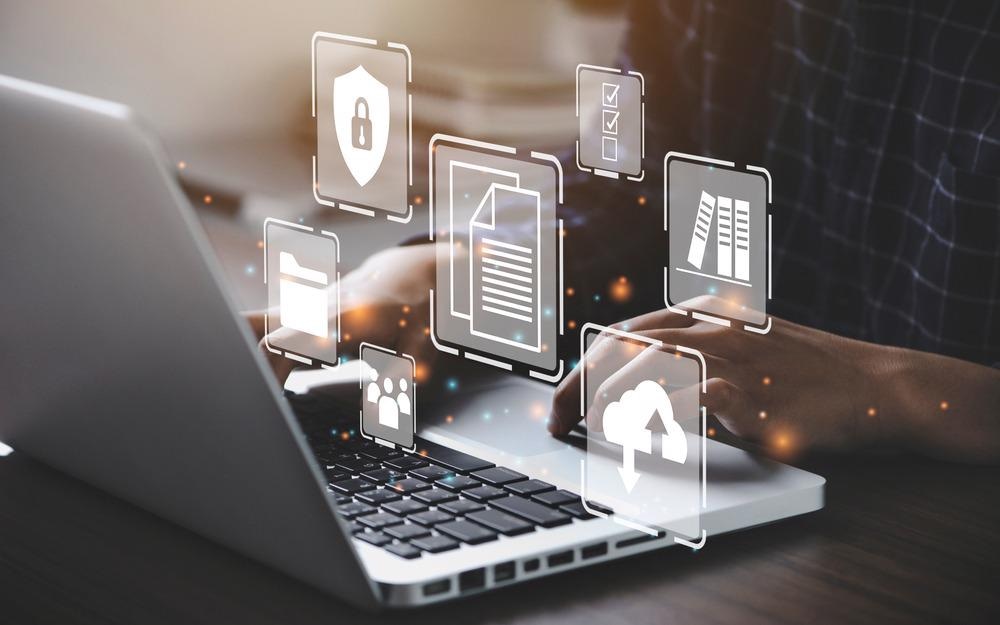Digitalization is a concept that is encroaching and infiltrating into every aspect of our lives - and laboratories are no different. Embracing technological advances has always been a great feature of the scientific field and lab digitalization is another step in that process.

Digitalization of laboratories. Image Credit: metamorworks/Shutterstock.com
Embracing technology ensures that accuracy is prioritized and errors are reduced. The principles of striving for improvement and accuracy apply in this modern age where we embrace technology in all aspects of laboratories and therefore the digitalization of laboratories.
The first example of digitalization is moving from paper-based, analog data recording to digital records. Paper records were vulnerable to damage and the integrity of the data challengable; digital records prevented this. Laboratory digitalization cannot be concisely defined but can be loosely explained as the adoption of digital infrastructure that aims to work more efficiently, collaboratively, and transparently. Reducing paper records is the initial step required to ensure that to ensure it is cost and time effective. This digitalization can include the integration of automated systems, robots and artificial intelligence to ensure that laborious repetitive functions are carried out without human involvement.
The benefits of laboratory digitalization are numerous. Digitalization allows scientists to spend more time on processes that are necessary rather than administrative or repetitive; this ensures that the time an individual spends is productive. Digitalization allows for better management and organization which also saves time spent looking for files. Software such as ELNs (electronic laboratory notebooks) ensures that the recording takes is efficient.
More advanced technology allows the use of autonomous robots to ensure research and scientific experiments are faster and more accurate as it reduces human errors. Additionally, many software that record data are also able to simultaneously analyze them and identify data that might be relevant for the scientist to review, accelerating research and discovery.
An increase in efficiency means productivity is also increased as time is better spent. The scientific field is, at the bottom line, a business and it has to be economically feasible for innovative research to happen; therefore, productivity and efficiency are vital.
Another main feature of digitalization is that data becomes more accessible and therefore it allows for more collaborative work and advances in science. This is advantageous for the scientific community as it opens more opportunities for the data to be interpreted differently and analyzed. Not only does it benefit the labs but the increased data adds to big data and increases knowledge as we can analyze trends on a grander scale using artificial intelligence.
As previously mentioned, digital data is safer and more secure from physical damage. However, it also has other security advantages of being able to track who has viewed the data and the changes that were made. Digital data also allows us to use encryption to authenticate who has access if the work is sensitive.

Digitalization enables scientific collaboration. Image Credit: DC Studio/Shutterstock.com
The digitalization of laboratories is a process that is inevitable due to its scientific advantages; however, it is not without challenges.
Digitalization requires a detailed understanding of processes and data flows to provide insights and identify areas that require better management. Once the processes and routines are mapped, it allows for simple or complex solutions to be introduced that address bottlenecks and routines and require changing to increase efficiency and productivity.
The main challenge when these data flows are identified is to manage the enormous volume of data that is stored in a laboratory. This requires all paper documents to be converted to a digital format which is time-consuming and laborious but essential to the long-term integration of a digital laboratory.
These digital copies are then managed using many software tools that not only store but also analyze, share, and manage these documents. To ensure further accuracy, this software can then be integrated with lab devices to seamlessly transfer data. All these processes to digitalize the lab require uprooting and changing practices and culture, which may be difficult and time-consuming.
Another challenge is digital security. When digitalization occurs, there needs to be a robust system of access control to ensure only certain authorized individuals have access. A robust audit trail is also required for changes made to data and to ensure that it is limited to the relevant individuals. This is essential for data integrity and transparency within the scientific field. All these challenges with the digitalization of laboratories are also accompanied by a large financial cost for these changes to be implemented and for staff to be trained.

Digital security. Image Credit: Deemerwha studio/Shutterstock.com
Conclusion
Laboratory digitalization is a growing field in which modern technological advances are implemented to ensure accuracy and productivity. Scientists have always been greater adopters of these advancements and as technology makes great strides, so will the scientific community. This integration has numerous benefits and also challenges that need to be anticipated and addressed to ensure that the scientific field takes full advantage.
References:
Further Reading
Last Updated: May 11, 2022